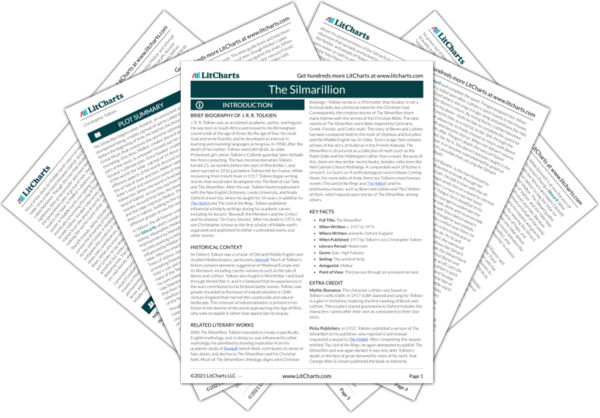The curse doesn’t force the Noldor to betray each other—instead, it merely warns them of the natural consequences of their actions, foreseen by Mandos. The pursuit of the Silmarils will lead only to chaos, suspicion, and ruin. Though Fëanor is right—his deeds
have been remembered by the elves—the consequences Mandos cautions them about raise the question of whether lasting glory is worth the price.
